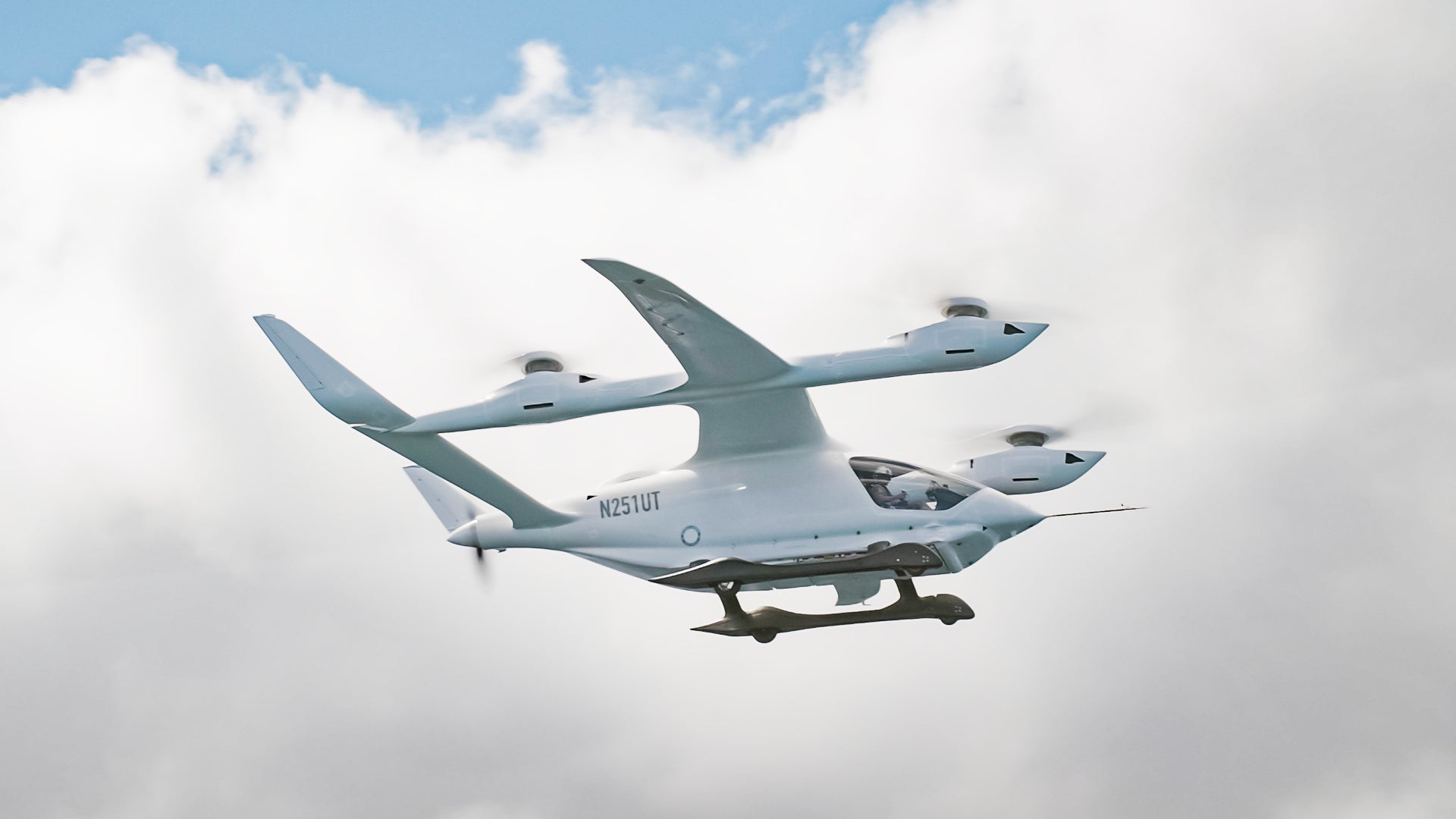BETA Technologies Raises More Than $300M in Additional Equity Capital to Fund Growth and Commercialization
Source: BETA Technologies
BETA Technologies, Inc., an electric aerospace company based in Vermont, has raised $318 million in Series C equity capital. QIA led the raise and several of BETA’s largest investors, including Fidelity Management & Research Company and TPG Rise Climate increased their ownership in BETA. Longtime customer United Therapeutics has also joined this round as an investor. The financing round was priced at an increased valuation relative to prior equity capital raises and was meaningfully oversubscribed. To date, BETA has raised more than $1 billion in equity capital.
Over the past eight years, BETA has developed sustainable products that lower the cost of transporting goods and people safely and reliably. This new funding will support the continued production, certification, and commercialization of those solutions, which include BETA’s all-electric fixed-wing and eVTOL aircraft ALIA, advanced high performance electric propulsion systems, as well as its multimodal charging systems and growing infrastructure network.
“This investment validates progress and milestones toward commercializing electric aviation,” said Kyle Clark, BETA’s Founder and CEO. “For years, we’ve flown across the country and deployed with partners to prove the safety and reliability of our aircraft and chargers. Now, we’re beginning to produce products for our customers. This continued belief and trust in this team and our vision will be good for the investors and good for the world. We are grateful for their shared vision.”
“At QIA, we seek out companies that are well-positioned to become category leaders by addressing critical challenges with innovative solutions,” said Mohammed Al-Sowaidi, Chief Investment Officer for Americas at QIA. “BETA is a leader in the electric aviation market and our participation in this funding round is fully aligned with QIA’s efforts to invest in the companies that are making the energy transition a reality.”
BETA’s all-electric aircraft, which are optimized for payload and range, sit at the center of its vision to make air transportation more reliable, greener, and cheaper. BETA is certifying two variants of its all-electric aircraft with the FAA: (i) the ALIA CTOL, which uses a runway to take off and land conventionally; and (ii) the ALIA VTOL, which is runway independent as it takes off and lands vertically. These aircraft share structural similarities, and both leverage BETA’s high performance electric propulsion technologies and fly-by-wire flight control systems. BETA plans to certify cargo and passenger configurations of both aircraft. This wide offering, which suits commercial and military customers, allows BETA to reach the largest addressable market.
In addition to aircraft, BETA has designed, certified and is manufacturing multimodal charging systems for its aircraft and industry peers’, as well as ground EVs of all types. BETA is the only producer of UL Certified grid-tied charging systems for aircraft, and their chargers have been adopted by multiple customers including several other aircraft manufacturers. BETA is selling charging systems as well as building a network of charging systems at airports across the United States. BETA is funding the majority of this infrastructure buildout through a combination of customer orders and government grants. To date, BETA has completed installation of its infrastructure across the eastern and southern US, and BETA plans to connect the network across the U.S. and expand globally in coming years.
In late 2023, BETA opened up a nearly 200,000 square foot manufacturing facility, where the team is currently producing aircraft for delivery to customers and charging cubes for deployment to the network. As they come off the line, these aircraft will begin to fulfill BETA’s deposit-backed contracts with global operators including Air New Zealand, UPS, United Therapeutics, Blade Urban Air Mobility, Bristow, Helijet, LCI, the U.S. Air Force, and the U.S. Army.
The Series C capital raise will be used to propel the certification of BETA’s ALIA CTOL, ALIA VTOL, and electric motors. It will also directly support the continued ramp-up of production and delivery of BETA’s aircraft and chargers to customers as they begin to operationalize electric aviation.
BETA has been flying its aircraft and charging on its own infrastructure for more than four years, operating in the busiest U.S. airspace, crossing international borders, and completing deployments with the U.S. Department of Defense. The company has demonstrated reliability, proven cost reductions compared to fuel-based aircraft, and achieved industry-first milestones such as the first crewed transition of a production-intent eVTOL.
BETA’s approach to commercialization includes owning and controlling the key enabling technologies for electric aviation — such as the electric motor, inverter, battery packs, high voltage distribution, and safety critical flight controllers — and partnering with best-in-class and legacy aerospace suppliers on other components where it has proven strategic to do so. This approach has optimized production timelines, clarified certification pathways, and diversified revenue streams within BETA’s business.
BETA’s production facility has capacity to produce up to 300 aircraft per year. BETA has already begun production of aircraft to be delivered to customers in the coming months. The business will continue to increase production rates over the following 18-24 months.
As it boosts production and certification efforts, BETA will continue working closely with its customers to ensure the delivery of a robust pilot and maintenance training program, and aftermarket support systems beginning day one. Together, BETA and its partners will ensure electric aviation improves operators’ business economics, provides a path to sustainable aviation and benefits all types of communities.
Goldman Sachs & Co. LLC acted as exclusive placement agent for BETA in connection with this capital raise. Kirkland & Ellis, LLP served as counsel on the fundraise.
About BETA Technologies:
BETA Technologies is an electric aviation company based in Burlington, Vermont. Founded in 2017, BETA is working to change the paradigm of how we transport goods and people by making aviation cleaner, safer, and more cost-effective. To do this, the company is producing all-electric aircraft; multimodal, interoperable charging infrastructure; and training programs for next-generation pilots and maintainers. The BETA team has designed and is pursuing certification of two electric aircraft, including an electric fixed-wing and an electric vertical takeoff and landing (eVTOL) aircraft. The company has also brought more than 20 chargers online across the East and Gulf coasts, with over 50 more in development.
Safety, simplicity, and pragmatism are at the heart of everything BETA does – from the design of its products and operations, to the company’s approach to the market. The BETA team brings deep experience from top global organizations and a hands-on, multi-disciplinary approach to problem-solving and innovation. To foster a deep understanding of aircraft, engineering, and a connection to the mission, each BETA team member has the opportunity to become flight-certified at no cost.
About QIA:
QIA is the sovereign wealth fund of the State of Qatar. QIA was founded in 2005 to invest and manage the state reserve funds. QIA is among the largest and most active sovereign wealth funds globally. QIA invests across a wide range of asset classes and regions as well as in partnership with leading institutions around the world to build a global and diversified investment portfolio with a long-term perspective that can deliver sustainable returns and contribute to the prosperity of the State of Qatar.






